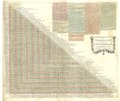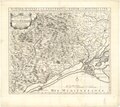
1657 (MDCLVII) was a common year starting on Monday of the Gregorian calendar and a common year starting on Thursday of the Julian calendar, the 1657th year of the Common Era (CE) and Anno Domini (AD) designations, the 657th year of the 2nd millennium, the 57th year of the 17th century, and the 8th year of the 1650s decade. As of the start of 1657, the Gregorian calendar was 10 days ahead of the Julian calendar, which remained in localized use until 1923.

Zaltbommel, also known, historically and colloquially, as Bommel, is a municipality and a city in the Netherlands.

The national flag of the Russian Federation is a tricolour of three equal horizontal bands: white on the top, blue in the middle, and red on the bottom.
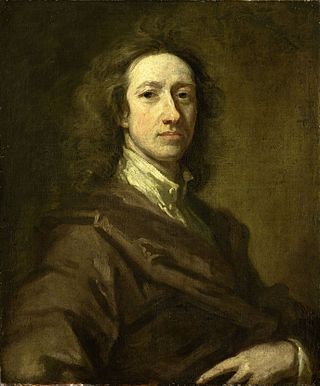
Cornelis de Bruijn or Cornelius de Bruyn, also formerly known in English by his French name Corneille Le Brun, was a Dutch artist and traveler. He made two large tours and published illustrated books with his observations of people, buildings, plants and animals.
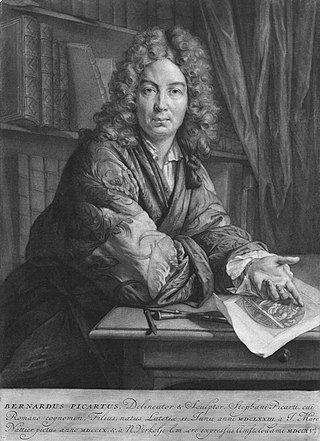
Bernard Picart or Picard, was a French draughtsman, engraver, and book illustrator in Amsterdam, who showed an interest in cultural and religious habits.

Bernard Nieuwentijt, Nieuwentijdt, or Nieuwentyt was a Dutch philosopher, mathematician, physician, magistrate, mayor, and theologian.
Drummond is a former provincial electoral riding in the Centre-du-Québec region of Quebec, Canada, which elected members to the National Assembly of Quebec. As of its final election, it consisted of most of the city of Drummondville and all of Saint-Edmond-de-Grantham, Saint-Eugène, Saint-Germain-de-Grantham and Saint-Majorique-de-Grantham.
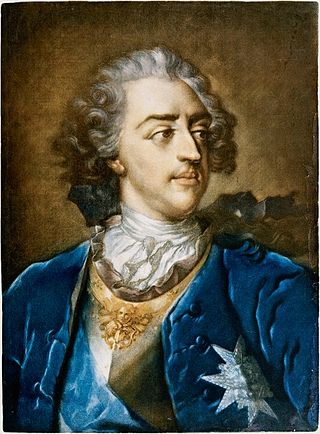
Jacob Christoph Le Blon, or Jakob Christoffel Le Blon, was a painter and engraver from Frankfurt who invented a halftone color printing system with three and four copper dyes using an RYB color model, which served as the foundation for the modern CMYK system. He used the mezzotint method to engrave three or four copper plates to make prints of paintings and portraits with a wide range of colors.
The Caledonian Mercury was a newspaper in Edinburgh, Scotland, published three times a week between 1720 and 1867. In 2010 an online publication launched using the name.

The British credit crisis of 1772–1773, also known as the crisis of 1772, or the panic of 1772, was a peacetime financial crisis which originated in London and then spread to Scotland and the Dutch Republic. It has been described as the first modern banking crisis faced by the Bank of England. New colonies, as Adam Smith observed, had an insatiable demand for capital. Accompanying the more tangible evidence of wealth creation was a rapid expansion of credit and banking, leading to a rash of speculation and dubious financial innovation. In today's language, they bought shares on margin.

Events from the year 1724 in Canada.

Duchess Dorothea Wilhelmine of Saxe-Zeitz was a duchess of Saxe-Zeitz by birth and by marriage Landgravine of Hesse-Kassel.

Dominique-Marie Varlet was a French prelate and missionary of the Catholic Church who served as vicar general of the Diocese of Quebec. Later, as the Roman Catholic Bishop of Babylon, he was involved in a schism within the Roman Catholic Church by consecrating four men successively as Archbishop of Utrecht.
The Acadian Deputy was a position in 18th-century Nova Scotia, Canada, created by the Nova Scotia Council to represent the interests of an Acadian community to the Council.

The Grill family are noted for their contribution to the Swedish iron industry and for exports of iron and copper during the 18th century. Starting as silversmiths and experts on noble metals the Grills became engaged in a wide range of businesses. After 1700 the family began its rise to prominence. They owned ironworks, while operating wharves, and importing material related to shipbuilding. The Grills benefited from mercantilist policy. With a positive balance on their account the Grills became engaged in banking, also in the Dutch Republic; around 1720 in the market for government liabilities and then mediating large credits and clearing international bills of exchange. The Grills had significant influence with the Swedish East India Company (SOIC); three members became directors of the SOIC and the Grill firm traded as members of the SOIC and privately.

Pieter Legouch also Legoes, was a Flemish-born Dutch Golden Age still-life painter. His best known works are vanitas still lifes.

